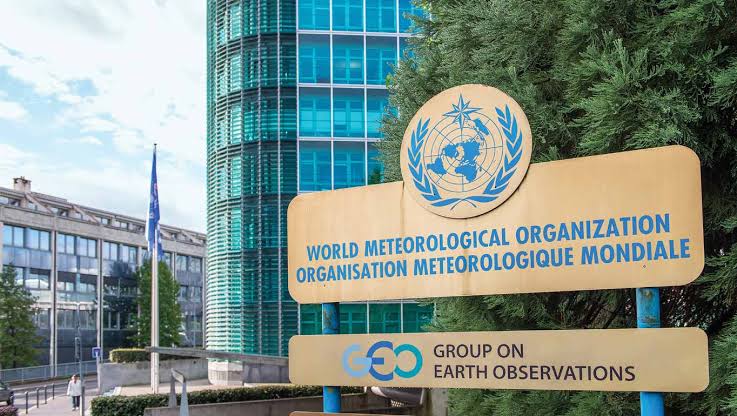Staff Correspondent
Published:2025-05-29 15:22:02 BdST
Bangladesh faces rising climate threat as global heat records loom: WMO
Bangladesh is on the frontlines of the climate crisis, and a new UN report warns the situation could soon get worse.
The World Meteorological Organization (WMO) has projected a high risk of record-breaking global temperatures over the next five years – with serious consequences for vulnerable nations like Bangladesh.
The WMO’s “Global Annual to Decadal Climate Update” says there’s a 70% chance that average global temperatures between 2025 and 2029 will exceed 1.5°C above pre-industrial levels – a key limit set in the Paris Agreement.
There’s also an 80% chance that at least one of those years will be the hottest on record. Already, 2024 has been confirmed as the warmest year to date.
Bangladesh living the impact
In Bangladesh, climate change is already hitting hard. As a low-lying delta country, it faces rising sea levels, stronger cyclones, shifting monsoons, and saltwater intrusion – all of which are affecting farming, drinking water, and livelihoods.
“This is not just a projection; it’s a lived reality in Bangladesh,” said Adourd Aleo Madhu, senior programme manager at the Coastal Development Partnership (CDP).
“The rising number of extreme weather events is no coincidence. It reflects a global failure to cut emissions – and countries like ours are paying the price.”
Warming oceans and melting glaciers are driving sea-level rise, threatening millions who live along Bangladesh’s coast and rivers. More than 13 million people in Bangladesh have already been displaced by climate change. That number could grow fast if global warming continues.
“The WMO’s projections should ring alarm bells,” said Madhu.
“Our coastal regions are sinking. Salinity is creeping inland, ruining crops and forcing families to move. We are witnessing a slow-moving catastrophe.”
Higher temperatures could reduce crop yields and worsen food insecurity. The 2019 Intergovernmental Panel on Climate Change (IPCC) had already warned of falling rice and wheat production in South Asia due to heat and erratic rainfall – trends confirmed by the new WMO report.
Rainfall is expected to increase across the region through 2029. While that might help crops in theory, unpredictable weather and extreme rain could cause flash floods and river erosion, damaging homes and infrastructure.
Dr Shafi Mohammad Tareq, professor of environmental sciences at Jahangirnagar University, said Bangladesh’s geography makes it especially vulnerable.
“Though global warming affects everyone, Bangladesh suffers more because of its low elevation and dense population,” he told the Daily Sun, adding, “If sea levels rise by just one metre, large parts of the country could go underwater. We’re not there yet, but the risk is real.”
Dr Tareq pointed to agriculture, public health, and rainfall patterns as the most affected sectors.
“Increased heat will hurt crops and people’s health,” he said. “Rain is no longer reliable. Sometimes it pours when we don’t need it and disappears when we do – unlike the past, when the seasons were more predictable.”
Bangladeshi scientists are working on climate-resilient crops, but farming methods must also adapt.
“We’ve also seen more climate-related diseases,” he added. “We need better healthcare and more investment in public health.”
Arctic melting, global responsibility
While Bangladesh suffers, the Arctic is warming 3.5 times faster than the rest of the planet. The WMO predicts Arctic temperatures will rise 2.4°C above the 1991–2020 average over the next five winters. Melting polar ice will raise sea levels further, worsening risks for low-lying countries like Bangladesh.
“As warming is largely caused by emissions from developed nations, they must take responsibility. They need to provide financial support and technology to help countries like Bangladesh cope,” said Dr Tareq.
The WMO warning comes ahead of COP30, the 2025 UN Climate Conference, where countries will update their climate pledges. The outcomes could decide whether the goals of the Paris Agreement remain within reach.
“This is our final warning,” said Ko Barrett, WMO deputy secretary general. “We are accelerating toward climate tipping points. Every fraction of a degree matters.”
Bangladesh has long called for climate justice, urging major emitters to contribute more to adaptation efforts.
“Our emissions are negligible, yet the suffering is immense,” experts said. “We need urgent climate finance, technology transfer, and a global loss and damage fund – now more than ever.”
Unauthorized use or reproduction of The Finance Today content for commercial purposes is strictly prohibited.


